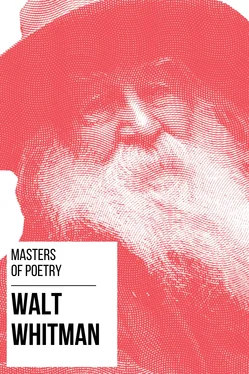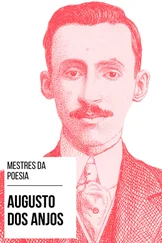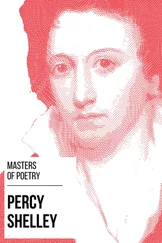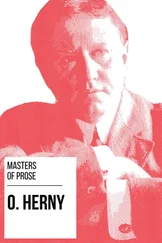The reader who would get at the spirit and meaning of "Leaves of Grass" must remember that its animating principle, from first to last, is Democracy,—that it is a work conceived and carried forward in the spirit of the genius of humanity that is now in full career in the New World,—and that all things characteristically American (trades, tools, occupations, productions, characters, scenes) therefore have their places in it. It is intended to be a complete mirror of the times in which the life of the poet fell, and to show one master personality accepting, absorbing all and rising superior to it,—namely, the poet himself. Yet it is never Whitman that speaks so much as it is Democracy that speaks through him. He personifies the spirit of universal brotherhood, and in this character launches forth his "omnivorous words." What would seem colossal egotism, shameless confessions, or unworthy affiliations with low, rude persons, what would seem confounding good and bad, virtue and vice, etc., in Whitman the man, the citizen, but serves to illustrate the boundless compassion and saving power of Whitman as the spokesman of ideal Democracy. With this clue in mind, many difficult things are made plain and easy in the works of this much misunderstood poet.
Perhaps the single poem that throws most light upon his aims and methods, and the demand he makes upon his reader, is in "Calamus," and is as follows:—
"Whoever you are holding me now in hand,
Without one thing all will be useless,
I give you fair warning before you attempt me further,
I am not what you suppos'd, but far different.
"Who is he that would become my follower?
Who would sign himself a candidate for my affections?
"The way is suspicious, the result uncertain, perhaps destructive,
You would have to give up all else, I alone would expect to be your sole and exclusive standard,
Your novitiate would even then be long and exhausting,
The whole past theory of your life and all conformity to the lives around you would have to be abandon'd,
Therefore release me now before troubling yourself any further, let go your hand from my shoulders,
Put me down and depart on your way.
"Or else by stealth in some wood for trial,
Or back of a rock in the open air,
(For in any roof'd room of a house I emerge not, nor in company,
And in libraries I lie as one dumb, a gawk, or unborn, or dead,)
But just possibly with you on a high hill, first watching lest any person for miles around approach unawares,
Or possibly with you sailing at sea, or on the beach of the sea or some quiet island,
Here to put your lips upon mine I permit you,
With the comrade's long-dwelling kiss or the new husband's kiss,
For I am the new husband and I am the comrade.
"Or, if you will, thrusting me beneath your clothing,
Where I may feel the throbs of your heart or rest upon your hip,
Carry me when you go forth over land or sea;
For thus merely touching you is enough, is best,
And thus touching you would I silently sleep and be carried eternally.
"But these leaves conning you con at peril,
For these leaves and me you will not understand,
They will elude you at first and still more afterward, I will certainly elude you,
Even while you should think you had unquestionably caught me, behold!
Already you see I have escaped from you.
"For it is not for what I have put into it that I have written this book,
Nor is it by reading it you will acquire it,
Nor do those know me best who admire me and vauntingly praise me,
Nor will the candidates for my love (unless at most a very few) prove victorious,
Nor will my poems do good only, they will do just as much evil, perhaps more,
For all is useless without that for which you may guess at many times and not hit, that which I hinted at,
Therefore release me and depart on your way."
When one has fully mastered this poem he has got a pretty good hold upon Whitman's spirit and method. His open-air standards, the baffling and elusive character of his work, the extraordinary demand it makes, its radical and far-reaching effects upon life, its direct cognizance of evil as a necessary part of the good (there was a human need of sin, said Margaret Fuller) its unbookish spirit and affiliations, its indirect and suggestive method, that it can be fully read only through our acquaintance with life and real things at first hand, etc.,—all this and more is in the poem.
IT is over sixty years since Goethe said that to be a German author was to be a German martyr. I presume things have changed in Germany since those times, and that the Goethe of to-day does not encounter the jealousy and hatred the great poet and critic of Weimar seemed to have called forth. In Walt Whitman we in America have known an American author who was an American martyr in a more literal sense than any of the men named by the great German. More than Heine, or Rousseau, or Molière, or Byron, was Whitman a victim of the literary Philistinism of his country and times; but, fortunately for himself, his was a nature so large, tolerant, and self-sufficing that his martyrdom sat very lightly upon him. His unpopularity was rather a tonic to him than otherwise. It was of a kind that tries a man's mettle, and brings out his heroic traits if he has any. One almost envies him his unpopularity. It was of the kind that only the greatest ones have experienced, and that attests something extraordinary in the recipient of it. He said he was more resolute because all had denied him than he ever could have been had all accepted, and he added:—
"I heed not and have never heeded either cautions, majorities, nor ridicule."
There are no more precious and tonic pages in history than the records of men who have faced unpopularity, odium, hatred, ridicule, detraction, in obedience to an inward voice, and never lost courage or good-nature. Whitman's is the most striking case in our literary annals,—probably the most striking one in our century outside of politics and religion. The inward voice alone was the oracle he obeyed: "My commission obeying, to question it never daring."
The bitter-sweet cup of unpopularity he drained to its dregs, and drained it cheerfully, as one knowing beforehand that it is preparing for him and cannot be avoided.
"Have you learn'd lessons only of those who admired you and were tender with you? and stood aside for you?
Have you not learn'd great lessons from those who reject you, and brace themselves against you? or who
treat you with contempt, or dispute the passage with you?"
Every man is a partaker in the triumph of him who is always true to himself and makes no compromises with customs, schools, or opinions. Whitman's life, underneath its easy tolerance and cheerful good-will, was heroic. He fought his battle against great odds and he conquered; he had his own way, he yielded not a hair to the enemy.
The pressure brought to bear upon him by the press, by many of his friends, and by such a man as Emerson, whom he deeply reverenced, to change or omit certain passages from his poems, seems only to have served as the opposing hammer that clinched the nail. The louder the outcry the more deeply he felt it his duty to stand by his first convictions. The fierce and scornful opposition to his sex poems, and to his methods and aims generally, was probably more confirmatory than any approval could have been. It went to the quick. During a dark period of his life, when no publisher would touch his book and when its exclusion from the mails was threatened, and poverty and paralysis were upon him, a wealthy Philadelphian offered to furnish means for its publication if he would omit certain poems; but the poet does not seem to have been tempted for one moment by the offer. He cheerfully chose the heroic part, as he always did.
Читать дальше












